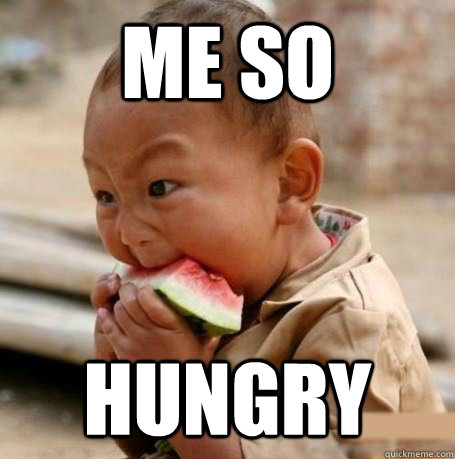Whether it is injury,
sickness, travel, planned training cessation or insufficient amount of training
–reversibility of previous gained performance improvement, Detraining, can happen. The decrease in performance will affect you
depending on your current status and the time of your interruption (short term,
3-4 weeks and long term >4 weeks). Bear in mind, that as I discuss the physiological
effects of short term aerobic detraining, the word detraining will be used to
describe a period without training, compared to tapering which sometimes mistakenly
is used interchangeably.
Cardiovascular effects of aerobic detraining. An increase in blood volume, mainly plasma
volume (already after first session), is one of the first endurance
adaptations. However, it also decreases to pretraining level within one week (~
-12% decrease for 2.91l -2.56l plasma). In an attempt to maintain cardiac
output (Q, circulation) for muscular blood supply, your heart will pump faster
(~ 4% increase in HR) to make up for decreased stroke volume (SV, amount of
blood pumped out with each beat) and decreased ventricular size.
Since Q is affected,
VO2max will drop proportional to quantity and therefor have a
greater effect on highly trained individuals than moderately trained, example
~8% eg. 62.2-57.3ml/kg/min.
For all Exercise
Physiologists...
VO2 max=Q x (a-vO2max)
It’s been shown that
VO2max remains 3% lower even after reestablished SV, indicating
importance of other metabolic factors. However, one should keep in mind that
recent data has shown that VO2max might not be the best predictor of
performance among high level athletes.
At the Muscular level of aerobic
detraining capillary density is reduced, but not enough to return to pretrained
state within four weeks of detraining. This will could possibly be another
factor affect SV. Additionally, it reduces the gas exchange necessary for
aerobic metabolism which in conjunction with reduction of oxidative enzymes
leads to an increased reliance on anaerobic metabolism. This shift towards
anaerobic reliance has been shown through an increase in RER, respiratory
exchange ratio, at set intensity. RER is the difference
between carbon dioxide produced and oxygen used, measure in exhaled air as
carbon dioxide is a byproduct of anaerobic metabolism.
RER=(Volume CO2)/(Volume O2)
Another supported factor
for an increased glycogen dependency is related to the decrease in muscle
GLUT-4 transporter protein. GLUT-4 is responsible for transport glucose
(carbohydrates) into the sarcoplasm for glycolysis (glucose breakdown for anaerobic ATP production) or glycogen
synthesis (glucose storage). It might sound contradicting that lack of this
transporter would increase use of carbohydrates. However, GLUT-4 is stimulated
by the combination of insulin and exercise. Since lack of exercise decreases insulin sensitivity,
leaving a lot of glucose in rested state, the uptake will be increased during exercise.
Increased insulin sensitivity with training will enable GLUT-4 activity and
glucose uptake even in rested state. Therefore, some research states that
GLUT-4 activity decreases only as a secondary outcome of decreased insulin
sensitivity. Additionally, the fat enzyme muscle lipase has shown to decrease
during inactivity meanwhile increasing at the adipose tissue leaving less room
for breakdown and more for build up of fat.
It is possible that
short-term detraining have a greater effect on peak aerobic performance as
submaximal performance has shown to be maintained amongst distance runners
while endurance trained athletes decreased their TTE (time to exhaustion) with
4-25%. The increased lactate production might be one of the factors. As lactate
is a product of glycolysis, this increased dependency on glucose will increase
blood lactate with a greater change in trained individuals.
While muscular
glycogen has shown to decrease with as much as 20% in one week, other anaerobic
substrate has not been studied as much in short term detraining and/or not shown
to a change indicating that it needs longer time for detraining and would
relate more to detraining in relation to resistance training. The same is true
for hormonal changes.
So does this mean that
days and periods off are bad? Absolutely not. The importance of recovery days
and off season is well knows. However, it’s importance to differentiate between
detraining, off season and other light periods following an athletes
periodization.
This article is based on content and sources in
the review by:
Review by:
Mujika, I., Padilla, S., Detraining: Loss of Training-Induced Physiological and Performance adaptations. Part I. Sports Med, 30 (3): 145-154, 2000.
Mujika, I., Padilla, S., Detraining: Loss of Training-Induced Physiological and Performance adaptations. Part I. Sports Med, 30 (3): 145-154, 2000.
Additional sources
McArdle, William D.,
et al. Exercise Physiology: Nutrition, Energy, and Human Performance.
7th ed., Wolters Kluwer Health/Lippincott Williams & Wilkins, 2015.




